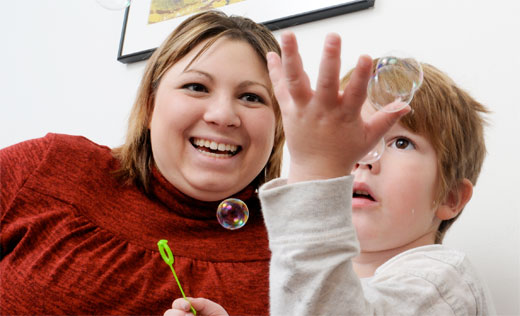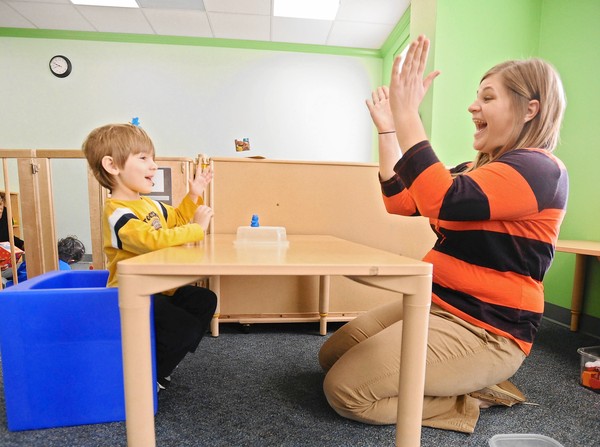Study Finds New Predictors of Speech and Language Development in Children with Autism
With two percent of U.S. school kids – or about a million children –diagnosed with some sort of autism, speech pathologists are feeling the need for more research in effective speech therapy, early identification and language outcomes. A new study aims to shed light on the later by highlighting predictors of speech and language development in children with autism.
According to the new findings published in the Journal of Pediatrics, speech emerges in children on the autism spectrum with severe language delay at greater rate than previously thought. The study was conducted by the Kennedy Krieger’s Institute for Autism and Related Disorders with the largest sample ever examined for the purposes of studying the relationship between deficits in ASD and the development of speech. Some core deficits include: poor social skills or engagement, sensory seeking or repetitive behaviors. Some children are rigid around eating or routines, which can sometimes contribute to childhood obesity or children missing out on proper nutrition. While others are hypersensitive to noise.
The authors were particularly interested in the development of fluent speech, or the use of meaningful generative phrases. Using a retrospective approach from a database that gathers biologic and phenotypic data on children with autism (the Simon Simplex Collection (SSC)), they looked at children who had a severe language delay as defined by not using word combinations by age four. Fluent speech is defined as the ability to use complex utterances to talk about topics outside of the immediate physical context.
According to author Erika Wodka, Ph.D., a neuropsychologist at the center, the study found ” …that nonverbal intelligence was the strongest predictor of phrase speech, while social interest and engagement were as robust, if not greater, when predicting the age that children attained phrase speech and fluent speech.” This may not surprise many who study autism in that it indicates that core abilities such as nonverbal intelligence or social engagement were more important factors in the development of communication than other deficits in autism.
What Does this Mean for Parents?
According to the authors, this offers hope to parents. Dr. Wodka says “with the appropriate therapy, a child will likely make significant gains in this area over time; however, progress should be expected to be slower for those children with lower intellectual abilities”
Is Your Child Getting the Proper Therapy?
There are many different forms of therapy that your child could benefit from. Consider the following:
- Speech and Language Therapy – for improvement of communication skills
- Occupational Therapy – for improvement of fine motor or sensory needs
- Sensory Integration Therapy – for improvement of sensory integration dysfunction
- Applied Behavior Analysis – for behavioral treatment strategies to communication, social skills, behavior and development
- Floortime – for communication and social engagement
- Music Therapy – using music to improve social and communication aspects of autism
If you aren’t sure which therapies your child should be receiving, consider talking to a developmental medicine specialist and ask for an evaluation of your child with recommendations for appropriate therapies.




